The home buyers are regaining their confidence as we move ahead in 2021. Experts predict a V-shaped recovery for the Indian economy in the coming months. With the swift increase in the pent-up demand, an effective real estate sales strategy is the need of the hour. But before we start planning, what does the current market sentiment say?
In a recent webinar, Mr. Hiranandani, National President of NAREDCO, spoke about the upcoming quarters for the real estate space. He discussed mass vaccinations and public-private-partnership. He emphasized that this will help restore normalcy in the market by June 2021 (Source: Moneycontrol). It was good news for the market that is estimated to contribute 14% to the national GDP.
With the end of FY 21-22 nearing, it is time that developers prepare the right real estate sales strategy for the year ahead.
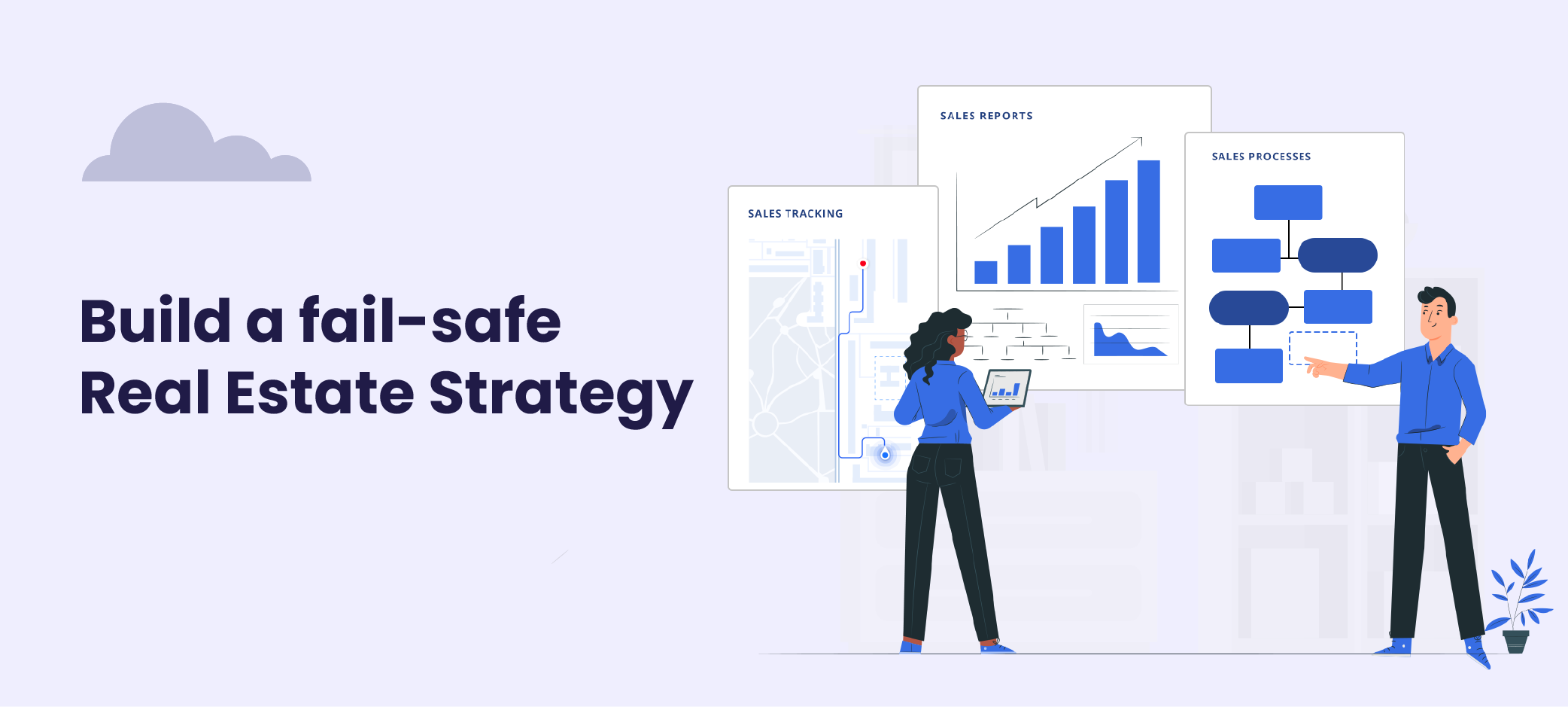
Real Estate Sales Strategy: Residential Market Outlook
Q4 of 2021 saw the market sentiment cementing over uncertainties in job security and the economy. However, the residential segment has recovered fastest in the real estate industry. Digital platforms report a 30-40% higher search activity for residential units, more than pre-Covid levels.
According to the JLL Residential Report for 2020, there was a 51% increase in sales in Q4 in comparison with Q3. Primary reasons for this being:
- Lower rates of interest
- Stagnation of prices
- Flexibility in payment plans
- Government policies
- WFH norms.
There was an increase in property launches across the nation. Property sales recovered to 52% of that in 2019. Across the top 7 cities (Delhi NCR, Mumbai, Bengaluru, Chennai, Hyderabad, Pune, Kolkata), 40% of sales belong to Mumbai and Delhi NCR. But there is still a lot of room for growth.
The figure below highlights the residential launch and sales figures:
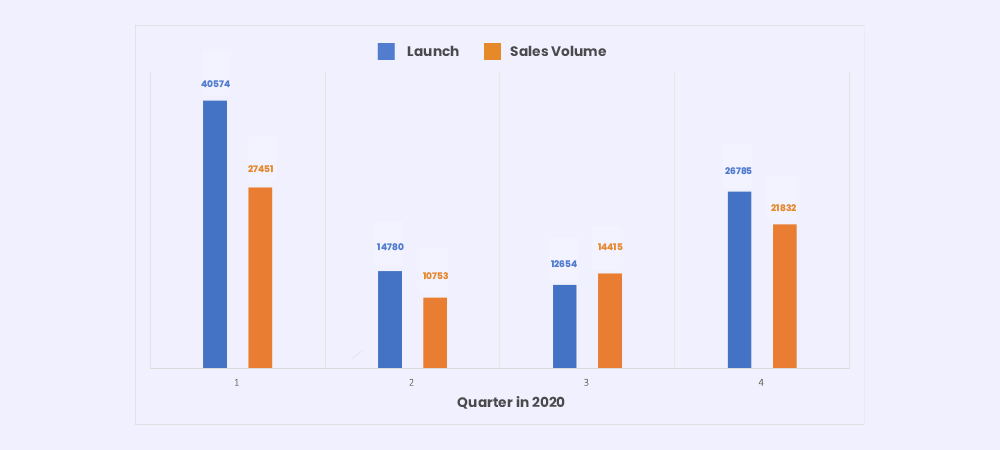
There also has been 112% growth in new launches. Q4 saw 26785 launches compared to 12654 in Q3 of 2020. Therefore, developers must keep in mind the inventory to sales ratio.
At the end of 2020, developers across the top 7 cities had 4.62 lakh units of unsold inventory. A YTS or years to sell estimate put the time required to sell an inventory around 4.2 years. The real estate sale strategy must focus upon limited inventory supply and higher sales. Robust inventory management will also play a role in stabilizing returns to the developers.
Real Estate Sales Strategy: Policy and Finance
There have been many efforts made by both the government and builders to generate demand within the populace.
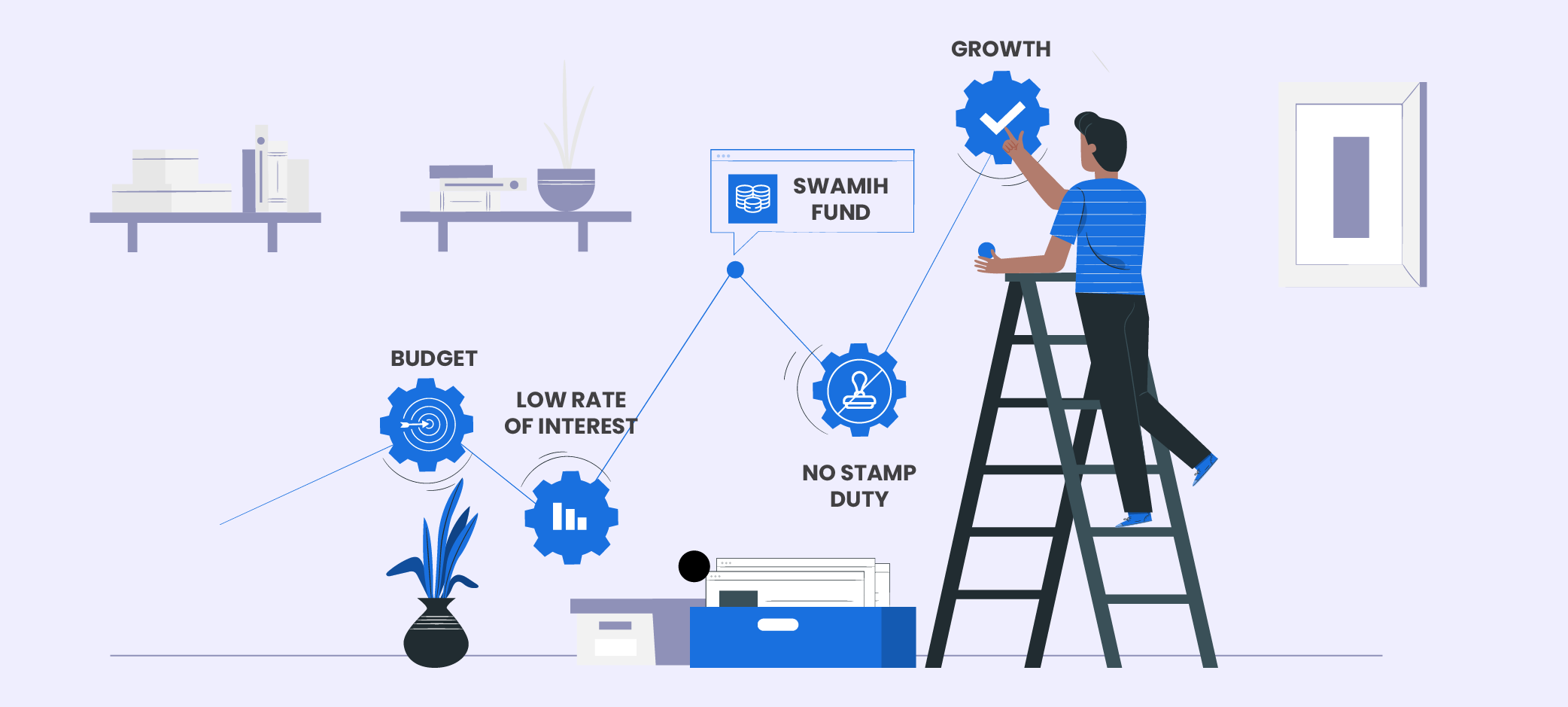
1. Lower interest rates
The central bank has asked banks like ICICI, IDFC First, HDFC, Kotak Mahindra, and more to offer low rates of interest. Banks are disbursing loans with rates ranging from 6.5 to 8%. It aims to increase consumption-backed growth in the real estate segment and enhance liquidity.
2. Budget 2021
The government has also shown its support for the real estate sector as nearly Rs. 54,581 crores were allocated to the Ministry of Housing and Urban affairs. These funds will allow the ministry to facilitate and promote projects like ‘Housing for all’ and ‘Pradhan Mantri Awas Yojana (PMAY).’ Deduction benefits and tax holiday for the affordable housing segment are also aimed at the infusion of funds in the market. It will offset the cash crunch which many developers are facing due to the pandemic.
Availing these benefits must also be a focus in your real estate sales strategy for 2024.
3. Stamp duty exemptions
States like Maharashtra and Karnataka have created exemptions on stamp duty. It is a lucrative option for many home buyers trying to avail it before it expires on 31st March 2021. Many developers in these states request an extension of this exemption because it has proven to be a game-changer in property sales.
4. SWAMIH Fund
The SWAMIH fund is also aiding cash-strapped developers and reducing the debt pile in the banks. The first projects under this initiative will be delivered by April 2021.
Both policy and finance have aligned to maximize the benefits for both the home buyer and developer.
Real Estate Sales Strategy: Digitization
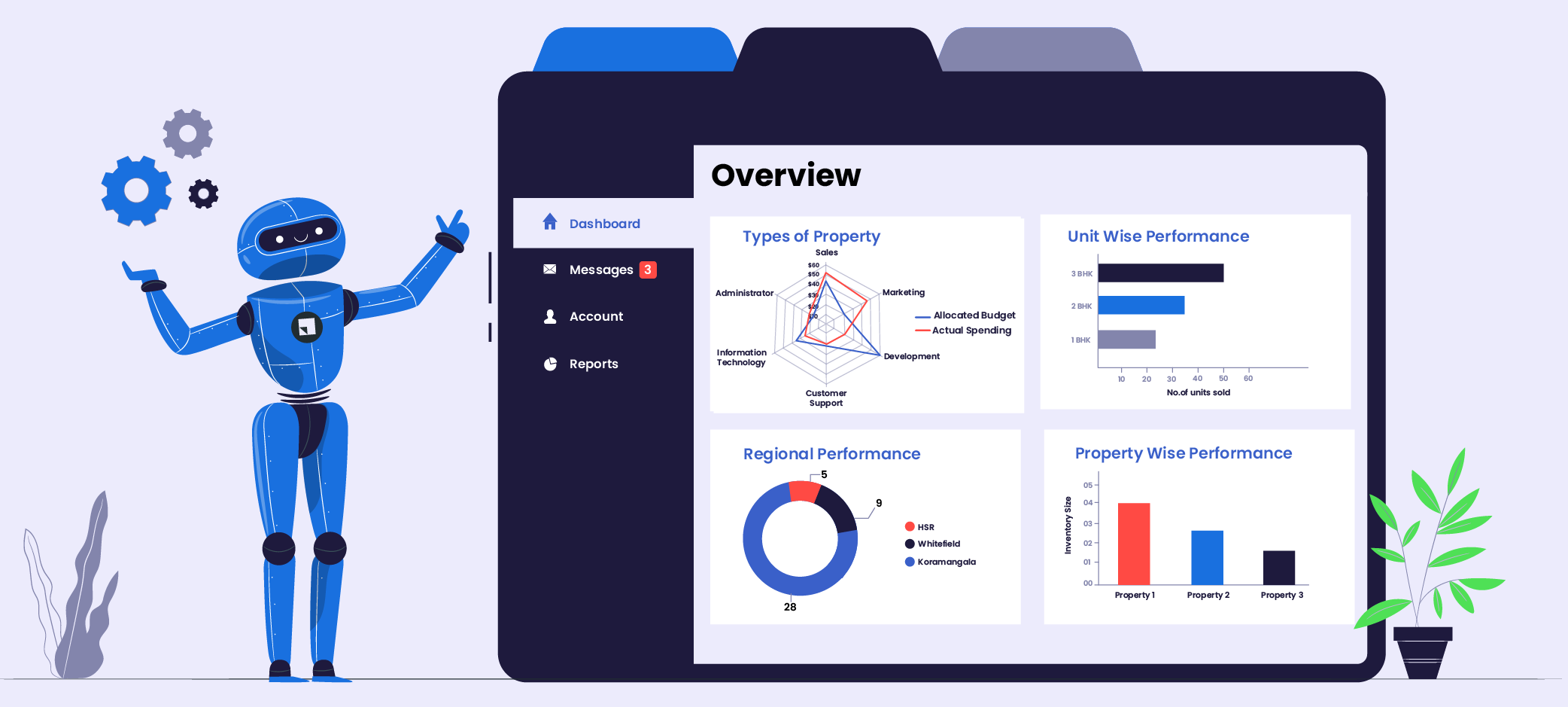
The previous section highlighted the policy and finance aspect of the real estate sales strategy. But there is another crucial aspect which is now catching up to the industry – property technology. While 2020 was a rude shock to the real estate sector, it also ushered innovation long overdue in the real estate market. Developers are turning towards technology to reap the benefits of the current trends. Virtual engagement, digital marketing strategies, cloud-based applications, data security, and more will be a focus in 2021.
Many solutions gained attention due to the rising customer preferences towards digital. Investing in digital tools will allow developers to fulfil functions such as call centre management, site visits, inventory handling, data management and aid the real estate sales strategy.
1. Property portals
After the lockdown, there was a spike in online traffic because offline media was not accessible anymore. Property portals have been in use for some time now. However, recently buyers have started using it a lot.
2. CRM

The drought in inquiries during the pandemic gave a lesson to the developers. They have to value every lead or inquiry that comes in. To make the most of every inquiry, realtors must use a CRM software. It helps capture leads, track interactions, understand customer sentiments, schedule appointments, and more. A Customer Relationship Management tool is also a must for striking a balance between sales and inventory. It allows you to track the entire homebuyer journey and close more property sales.
To give you an example, Rohan Builders was facing issues with capturing leads generated through various channels such as:
- Social media
- Property portals
- Organic
- Offline channels
With LeadSquared Real Estate CRM, they automated lead capture through all these lead generation channels. It resulted in a drastic increase in their property closures.

3. Inventory Management (IM) Modules
Due to the greater influx of inventory in the market, the supply and demand curve has shifted towards the supply side. The real estate sales strategy must include IM modules that can offset this problem by giving out critical insights to developers. These insights allow them to understand their property absorption rates and make timely decisions to improve their sales pipeline.
4. IVR Applications
Real estate agents call prospects for exploring their needs, scheduling site visits, and more. But dialing a number manually and making notes of their requirements or recording the disposition consumes a lot of time. A simple solution to make them more productive is to use IVR applications. It allows recording calls for quality assurance. Moreover, if another agent must pick up the follow-ups with the lead, then he may get a complete context of the conversation. This way, he can deal with the prospect better. Developers can integrate IVR applications with their CRMs, like LeadSquared Real Estate CRM, and keep track of sales calls and agent productivity.
5. Mobility Solutions

Developers have also begun to equip their on-site agents with mobility applications. Earlier on-site activities were distributed and recorded in an offline manner. This approach led to decentralized data which increase difficulty in gathering relevant insights. Also, due to the rise in virtual site tours, developers had to shift to online media to stay relevant in the market. To deal with such issues, developers introduced applications that could help their agents:
- Add and view home buyer data.
- Connect with video conferencing apps like Zoom to conduct virtual visits.
- Make calls.
- Send emails.
- Access inventory data on the go.
This centralized view of all functions allows them to increase property conversions.
6. Payment Gateways
Payment gateways are becoming a popular channel for collecting token amounts. As a developer, investing in this infrastructure will increase convenience for your home buyers. A simplified process will result in a better customer experience and will translate into more conversions.
Conclusion
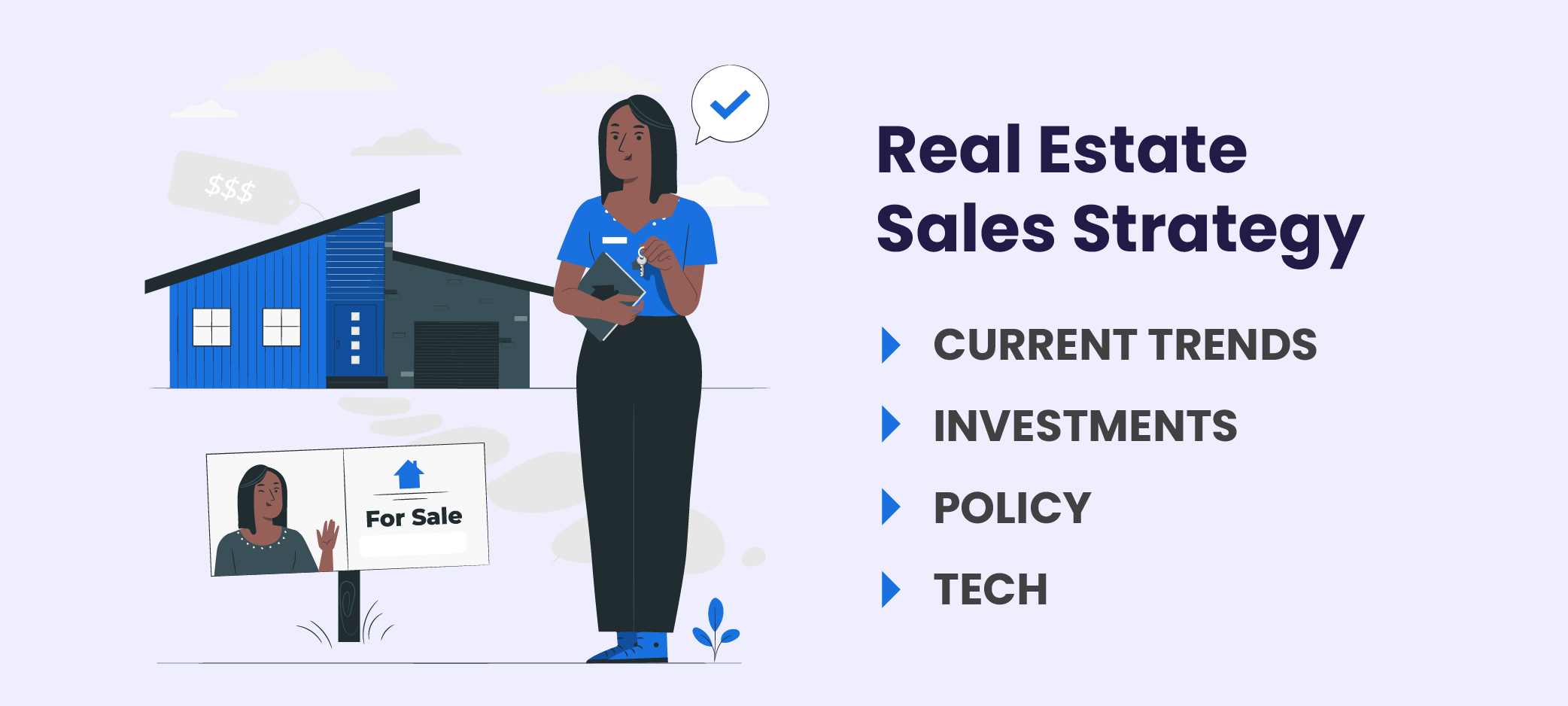
Property sales are evolving. To keep up with the changing customer preferences and to create a seamless home buyer journey, investments are a must on the tech as well as on the process front. As the customer sentiment normalizes, the pent-up demand will increase. To cater to this rising demand, developers must:
- Understand the changing financial landscape that is affecting customer sentiment.
- Stay updated and avail any government benefits to reduce stress on their sales pipeline and enhance liquidity.
- Create a robust sales process. It holds the secret to the ultimate real estate sales strategy in 2022.
If you want to know how you can align your sales to leverage these opportunities, sign up for the LeadSquared Real Estate CRM now!







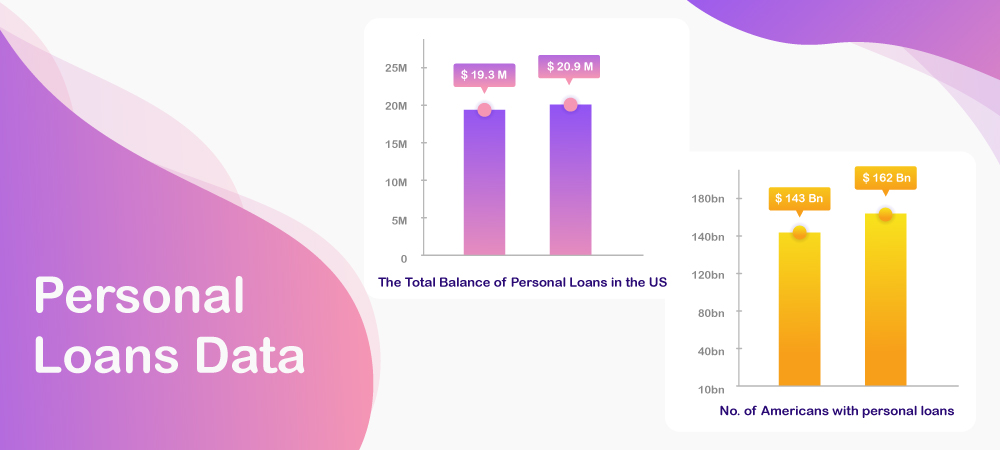
![[Webinar Recording] The Love Letters of Enrollment 10 enrollment letters](https://www.leadsquared.com/wp-content/uploads/2021/11/enrollment-letters-80x80.jpg)